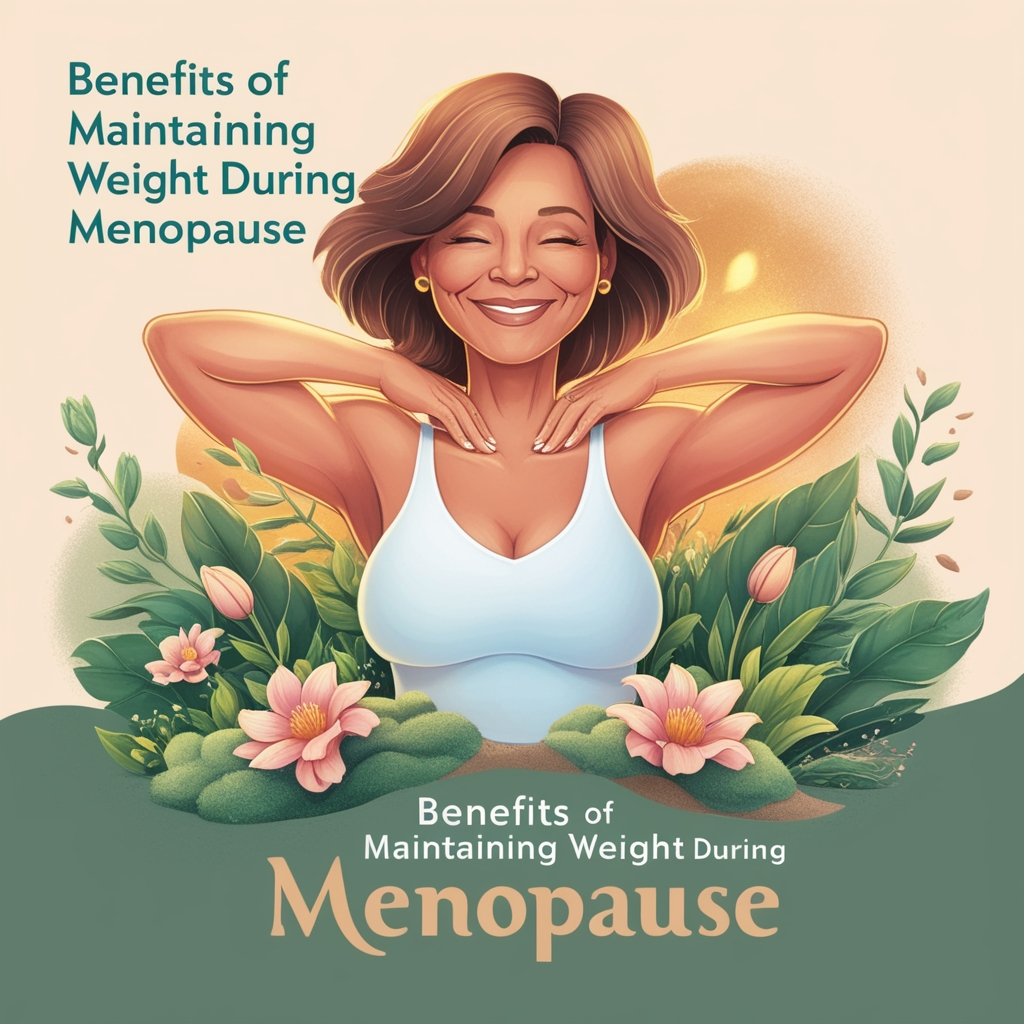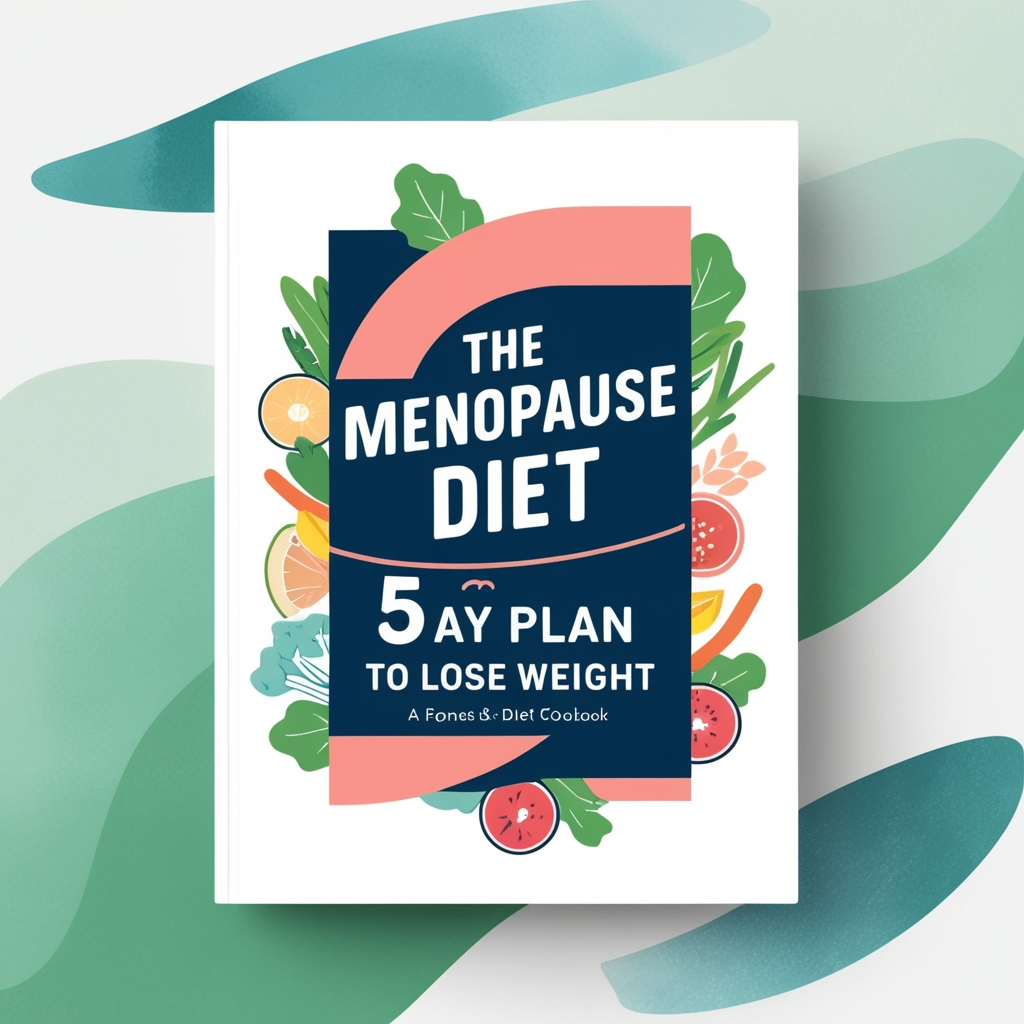The Menopause Diet: 5-Day Plan to Lose Weight Naturally is the time of life when not only hormones are fluctuating, but your weight also increases. To stay in shape and ditch being overweight, you need the menopause diet 5 day plan to lose weight.
During menopause, the changes in metabolism tend to store fat, and muscle mass decreases. In this blog, you will learn about weight gain during menopause along with a nutritious and easy-to-follow diet during menopause. Explore the link and shed your extra pounds.
However, always remember that everyone’s health and diet are different. So before you start a 7 day menopause diet plan to lose weight, it is best to talk to your doctor first and get a green light.
What Are The 3 Stages Of The Menopause?
Menopause is a natural biological process that occurs in women. The stages of menopause require adopting a healthy lifestyle, including a balanced diet for menopause for an easy transition.
The stages of menopause consist of three key phases: perimenopause, menopause, and postmenopause.
- Perimenopause (Transition Phase): This stage typically begins in a woman’s 40s but can start earlier. It is characterized by hormonal fluctuations and irregular menstrual cycles, and it is the beginning of menopause.
The symptoms such as hot flashes, night sweats, and mood swings. Fertility declines during perimenopause, and women may experience changes in their menstrual flow. - Menopause: This stage of menopause is defined as when a woman has not had a menstrual period for 12 consecutive months. This usually occurs around age 51, but the timing can change sometimes.
Menstruation stops at this point due to a large drop in estrogen and progesterone levels. - Postmen pause: Postmen pause refers to the period following menopause. During this stage, menopausal symptoms typically reduce. Though some changes, such as vaginal dryness and sleep disturbances, may continue for some time.
Women are also at an increased risk of certain health issues like osteoporosis and cardiovascular disease due to the decline in estrogen levels.
Understanding and managing these stages is crucial for women’s health during the menopausal transition. Consulting with healthcare professionals can help address individual symptoms and concerns. Moreover, NIH–funded scientists are working to answer the many questions about the health impacts of menopause.
Symptoms Of Menopause
The Menopause Diet: 5-Day Plan to Lose Weight Naturally Women’s bodies experience major hormonal changes from perimenopause to menopause. Which needs a significant implementation of a diet for menopause to effectively handle this life-changing stage. Here are some noticeable symptoms seen in signs of menopause:
- Irregular periods
- Vaginal dryness leading to urinary tract infections
- Hot flashes
- Chills (sudden feeling of fear or anxiety)
- Night sweats
- Sleep problems
- Mood changes
- Weight gain and slowed metabolism
- Thinning hair and dry skin
- Loss of breast fullness
- Decreased bone density
- Heart palpitations
Health Issues During Menopause
You know perimenopause brings a storm into your life, and you start gaining weight. Every woman experiences weight gain and fat distribution differently. The key is to maintain your weight. If it goes unmanaged, the risk of following health issues increases.
- Heart diseases
- Menopause and Joint Pain
- Type 2 diabetes
- Breathing issues, especially while sleeping
- Decreased self-esteem and body image issues.
- Difficulty managing other menopause symptoms like mood swings, hot flashes, and night sweats.
Benefits of Maintaining Weight During Menopause
When you manage your perimenopause and menopause weight gain well, it saves you from a lot of pesky health risks. Here are some of the benefits of maintaining your weight during menopause:
- Reduced risk of heart disease, diabetes, and common chronic conditions after menopause.
- Managing your weight through physical activity keeps your bones healthy, and reduces the risk of fractures in older age.
- Losing weight, especially if you’re overweight, might help reduce menopause signs because being too heavy can make symptoms worse.
- A healthy weight decreases the risk of cancer and dementia.

Here is The Menopause Diet 5-Day Plan to Lose Weight:
If you are in your menopause transition and have started gaining weight, it is your sign to start managing it. The menopause diet 5-day plan to lose weight is going to be really helpful for you.

Day 1:
The menopause diet plan to lose weight focuses on a fresh and healthy start. The food choices should be those that provide you with energy throughout the day. Here is the day 1 meal plan for you:
- Breakfast: Ground flax seeds and berries on a bowl of greek yoghurt.
- Mid-day snack: Mixed nuts
- Lunch: Delicious grilled chicken and green veggie salad. You can add avocado and nuts as well.
- Afternoon snack: Cucumber and carrot slices with hummus.
- Dinner: Roasted vegetables with baked salmon.
Day 2:
With such a fresh start, you can now incorporate more veggies and fruits into your routine and show some love to your gut. Your day 2 diet plan is:
- Breakfast: A bowl of oatmeal with almond butter garnished with some apple slices.
- Mid-day snack: Greek yoghurt with any of your favourite seasonal fruits.
- Lunch: Mixed veggie salad with a bowl of red lentil soup
- Afternoon snack: Whole grain crackers with an avocado.
- Dinner: Brown rice with sautéed vegetables. You may add tofu as well.
Day 3:
When you are officially on day three of the menopause diet 5 day plan, you can add food options that can help balance your hormones.
To save you from hormonal fluctuations, here is your day 3 plan.
- Breakfast: Greek yoghurt/chia seed pudding with sliced kiwi (you can sprinkle cinnamon powder for enhanced taste).
- Mid-day snack: A handful of mixed nuts. You may replace nuts with grapes or an apple.
- Lunch: Mixed vegetables and chickpea salad.
- Afternoon snack: A sliced apple with some almond butter.
- Dinner: Stir-fry tofu with roasted vegetables.
Day 4:
The diet during menopause to lose weight shouldn’t be boring or make you feel like you are missing out on tasty stuff. This 4-day fancy meal plan will satisfy your craving while keeping you in a calorie deficit.
- Breakfast: Quinoa breakfast bowl with almond milk, banana, and almonds
- Lunch: Whole grain pita stuffed with hummus, grilled vegetables, and falafel
- Dinner: Baked chicken breast with steamed asparagus and brown rice
- Snacks: Celery sticks with peanut butter, a handful of dried fruit and nuts
Day 5:
Here comes the last day of your weight loss diet during menopause. It means you have been eating nutritious and clean food for four days, and your body is loving it. You are cleansing your gut and controlling your cravings.
- Breakfast: 2 eggs and a mushroom omelette
- Mid-day snack: Roasted nuts
- Lunch: A glass of raspberry and coconut milk smoothie.
- Afternoon snack: Crackers (whole grain) with hummus or an avocado.
- Dinner: Fried broccoli and zucchini pasta (whole grain).
Following the menopause diet plan will help you shed some extra pounds that you’ve been carrying on your transition journey. The key is to stay informed about the food choices you are making and always start the diet plan when your doctor allows you to.
Basic Dietary Guidelines For Menopause
During menopause, hormonal changes can impact metabolism and health. Maintaining a balanced diet becomes crucial to manage symptoms. Here are a few dietary guidelines for menopause:
- Calcium-Rich Foods: Have adequate intake of dairy products, leafy greens, and fortified foods to support bone health and reduce the risk of osteoporosis.
- Omega-3 Fatty Acids: Include fatty fish, flaxseeds, and walnuts in your diet to help manage inflammation, alleviate mood swings, and support heart health.
- Fruits and Vegetables: Include a variety of colorful fruits and vegetables in your diet for menopause for essential vitamins, minerals, and antioxidants to combat oxidative stress and promote good health.
- Lean Proteins: Opt for lean protein sources like poultry, fish, tofu, and legumes to maintain muscle mass and support metabolism during hormonal changes.
- Hydration: Stay well-hydrated with water and herbal teas to alleviate hot flashes, support digestion, and maintain skin health.
- Limit Processed Foods: Minimize intake of processed foods, refined sugars, and excess caffeine to manage weight, mood, and overall hormonal balance.
- Whole Grains: Choose whole grains like quinoa, brown rice, and oats to regulate blood sugar levels, improve digestion, and provide sustained energy.
- Limit Alcohol And Caffeine: Moderate alcohol and caffeine consumption to minimize the impact on sleep quality, mood, and hormonal fluctuations.
- Vitamin D: Ensure sufficient vitamin D intake through sunlight exposure, fortified foods, or supplements to support bone health and immune function.
- Regular Exercise: Engage in regular physical activity, including weight-bearing exercises, to maintain a healthy weight, strengthen bones, and manage stress.
Note: Remember, individual needs may vary, and it’s advisable to consult with a healthcare professional or a dietician for personalized advice based on your health status and specific concerns.
